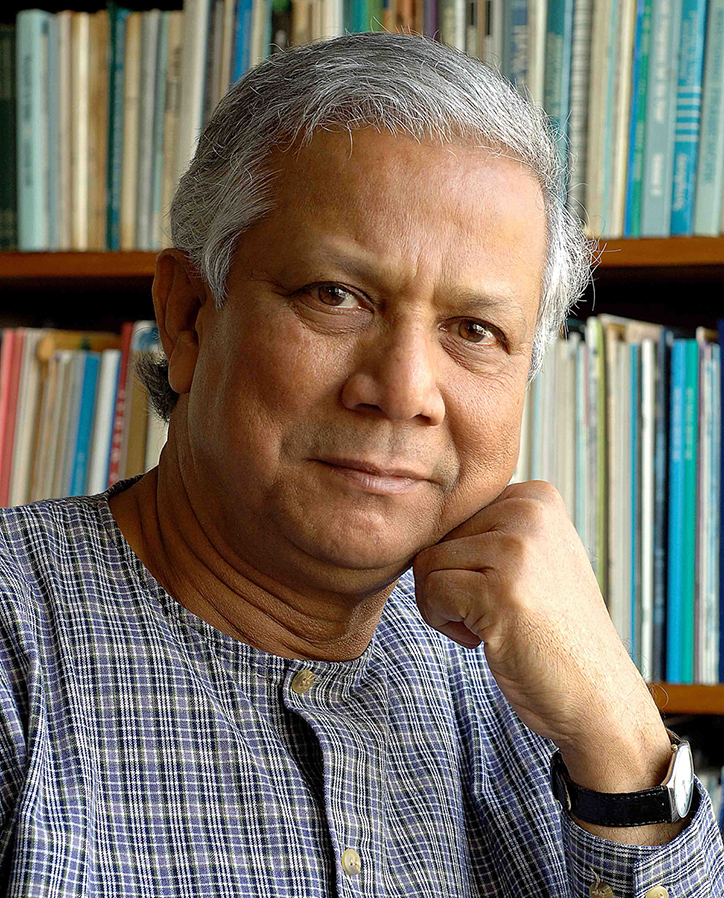Speakers By Topic





Achieving Lasting Peace by Eradicating Poverty
“I was not trained to understand self-help. I was trained, like all students of economics, to believe that all people, as they grow up, should prepare themselves to get jobs at the job market. If you fail to get a job, you register yourself for government charity. But I could not hold on to these beliefs when I faced the real life of the poor people in Bangladesh. For most of them [the] job market did not mean much. For survival they turned to economic activities on their own. But the economic institutions and policies did not take notice of their struggle. They were rejected by the formal systems for no fault of their own....” -From a speech given by Professor Yunus
Halving Poverty by 2015
“I have chosen to speak on the most daring of all Millennium Development Goals: halving poverty by 2015. I have chosen it for two reasons. First, this is the most courageous goal mankind ever set for itself. For the last two decades I have been talking about creating a world free from poverty. I talk about it not because it is unjust to have a world with poverty, which is, of course, true. I talk about it simply because I am totally convinced from my experience of working with poor people that they can get themselves out of poverty if we give them the same or similar opportunities as we give to others. The poor themselves can create a poverty-free world....” -From a speech given by Professor Yunus
Nobel Laureate Professor Muhammad Yunus is the father of microcredit, the father of social business, the founder of Grameen Bank, and of more than 50 other companies in Bangladesh. For his constant innovation and enterprise, Fortune Magazine named Professor Yunus as “one of 12 greatest entrepreneurs of our time.”
A Fulbright Scholar at Vanderbilt University, Professor Yunus received his Ph.D. in Economics in 1969.
Professor Yunus returned to Bangladesh in 1972 and joined the Department of Economics, University of Chittagong, as its chairman. In 1976, Professor Yunus started to experiment with providing collateral free loans to the poor. The project was called Grameen Bank Project and later, in 1983, became a full-fledged bank for providing loans to the poor, mostly women, in rural Bangladesh. Today Grameen Bank has over 8.4 million borrowers, 97% of whom are women and disburses over one and a half billion US dollars each year.
In 2006, Professor Yunus and Grameen Bank were jointly awarded the Nobel Peace Prize.
Professor Muhammad Yunus is the recipient of more than 50 honorary degrees from universities across 20 countries. He has received 112 awards from 26 countries including state honors from 10 countries.
He is one of seven individuals to have received the Nobel Peace Prize, the United States Presidential Medal of Freedom and the United States Congressional Gold Medal. Other notable awards include the Ramon Magsaysay Award (1984), World Food Prize (1994), International Simon Bolivar Prize (1996), Sydney Peace Prize (1998), The Prince of Austurias Award for Concord (1998) and Seoul Peace Prize (2006).